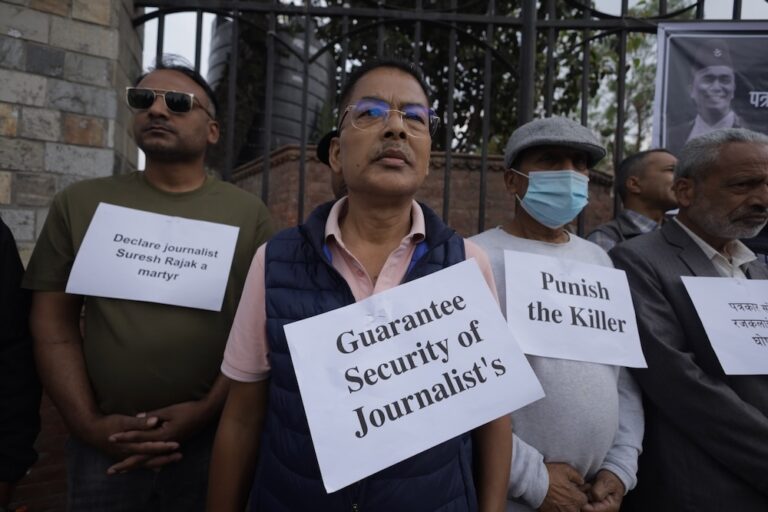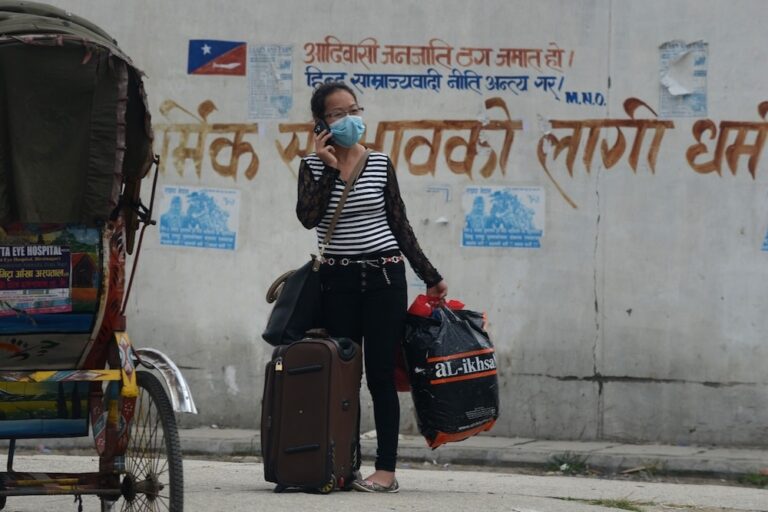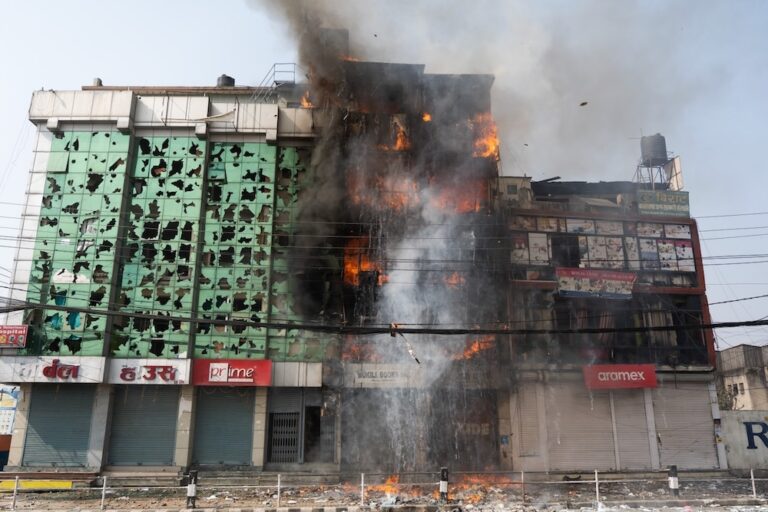Since 24 March, three journalists have received threats, two reprimanded, and six journalists barred from reporting according to the monitoring of the Federation of Nepali Journalists.
This statement was originally published on ifj.org on 17 April 2020.
The Covid-19 lockdown in Nepal has seen a drastic increase in media rights violations with journalists harassed, underpaid and out of work. The International Federation of Journalists (IFJ) and its affiliates, the Federation of Nepali Journalists (FNJ) and the Nepal Press Union (NPU) urge media houses and the government to address the severe escalation of media rights violations immediately.
According to a preliminary FNJ media rights monitoring report, since the imposition of a lockdown on March 24, three journalists have received threats, two reprimanded, and six journalists barred from reporting. Additionally, journalists have been laid off, with others forced to take leave without pay or move to a part-time position. Several media houses, including myRepublica have allegedly failed to pay outstanding salaries.
Journalists’ safety at work has declined significantly with the report stating that media companies are failing to provide personal protective equipment, including masks, sanitisers and gloves. While some newsrooms have introduced rotation policy between working from home and in the office, those who continue to work from an office face transportation issues.
Further details are expected to be released with the publication of the final report.
FNJ said: “FNJ demand the government of Nepal bring in a relief package for journalists and media houses”. Journalists are on the front lines, similar to health workers and security forces, FNJ added.
NPU said: “The NPU calls upon those responsible to monitor the issue and ensure that all working journalists are paid in a timely fashion as per the working journalists’ act of Nepal”.
IFJ said: “The IFJ calls on the government of Nepal and media houses to heed the call of journalists and workers demanding physical and financial safety”.



